At the 2025 Indonesia Mining Conference and Critical Metals Summit – 2025 Southeast Asia Tin Industry Conference, co-organized by SMM Information & Technology Co., Ltd., supported by the Indonesian Ministry of Foreign Affairs as the government supporter, and co-hosted by the Indonesian Nickel Miners Association (APNI), Jakarta Futures Exchange, and China Coal Resource Network, Hanif, Senior Dry Bulk Shipping Analyst at Kpler, elaborated on the theme "Optimizing Coal Logistics and Transportation Efficiency: Integrating Technology and Sustainable Development Strategies."
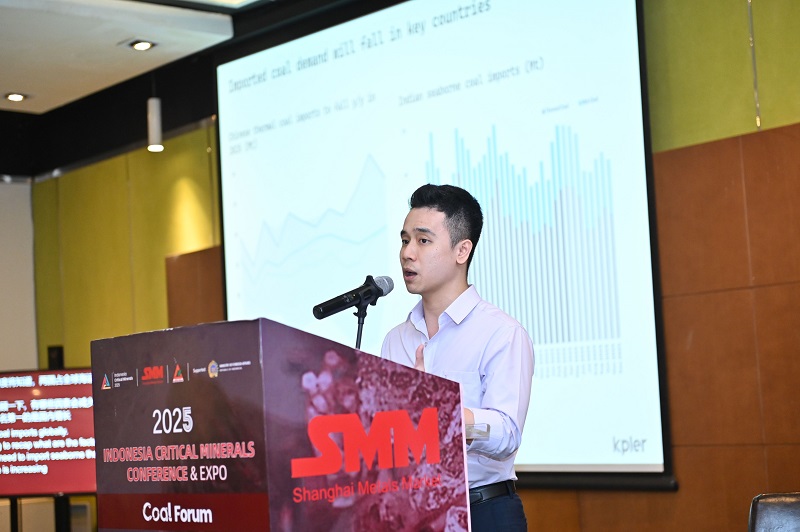
Pacific Coal Market Rebalancing and Its Impact on the Dry Bulk Shipping Industry
Coal Imports Demand from Major Countries to Decline
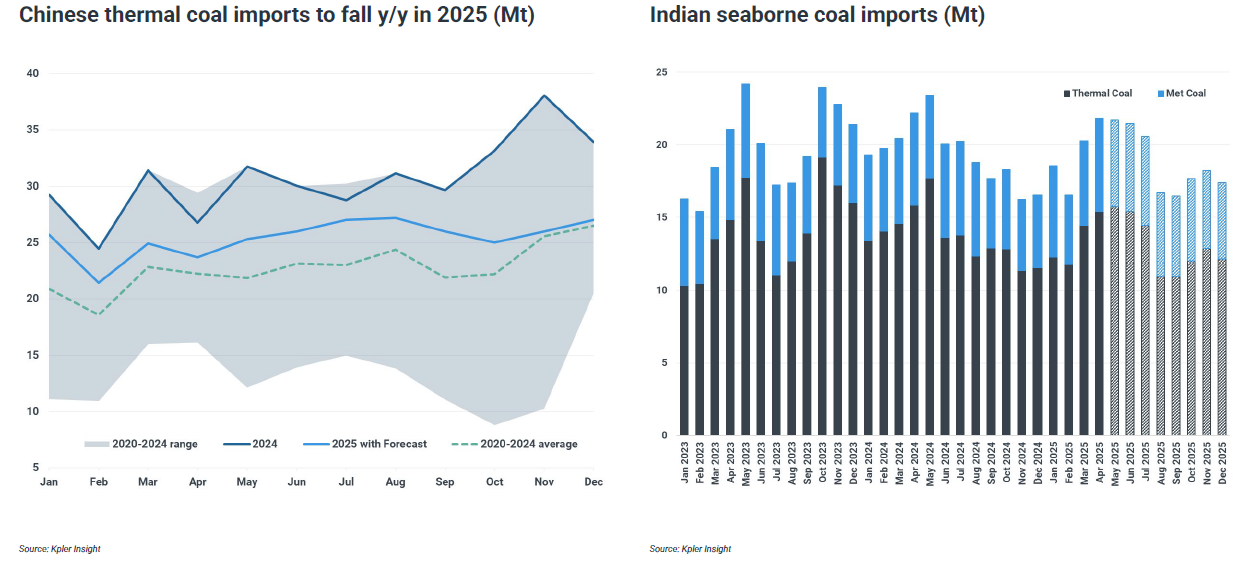
Due to reduced thermal coal demand and increased land-based metallurgical coal supply, seaborne coal imports are expected to decline in 2025.
Declining Coal Demand to Drag Down the Shipping Industry
Reduced coal demand exerts downward pressure on dry bulk fleet demand.
The presentation covered the global dry bulk fleet's share, the contribution of dry bulk to shipping demand in 2024, and other related aspects.
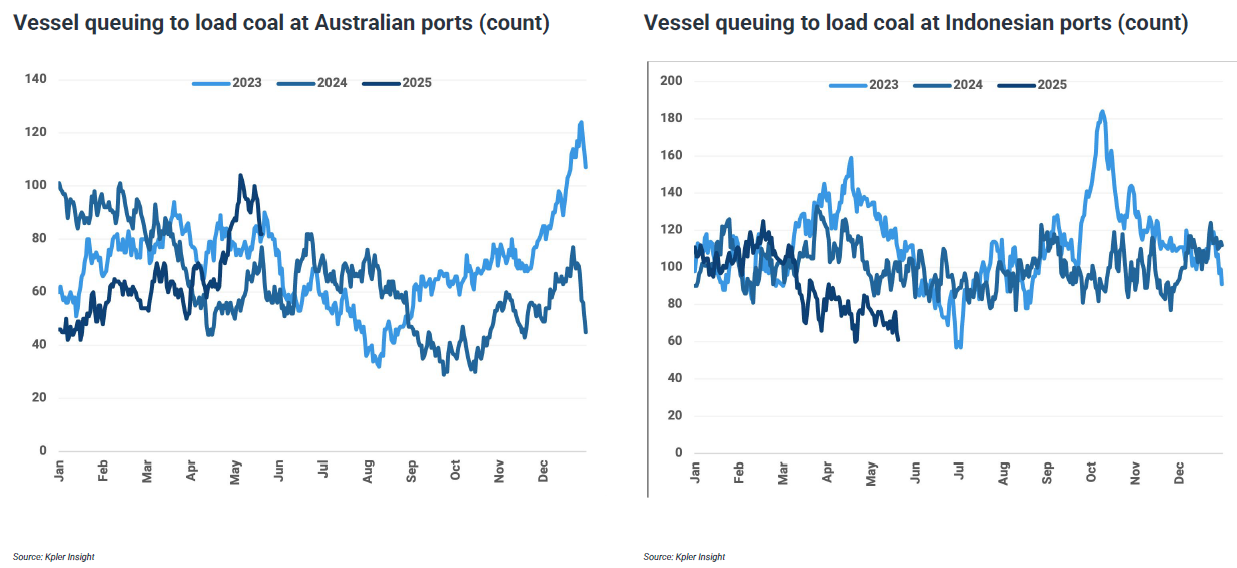
Vessel Earnings Likely to Remain Unsupported
Underutilization of vessels exacerbates the supply surplus, while a bearish oil price outlook lowers shipping costs.
Port Delays Decrease, but Reasons Vary
Weaker weather disruptions to shipping and lower demand free up more port space.
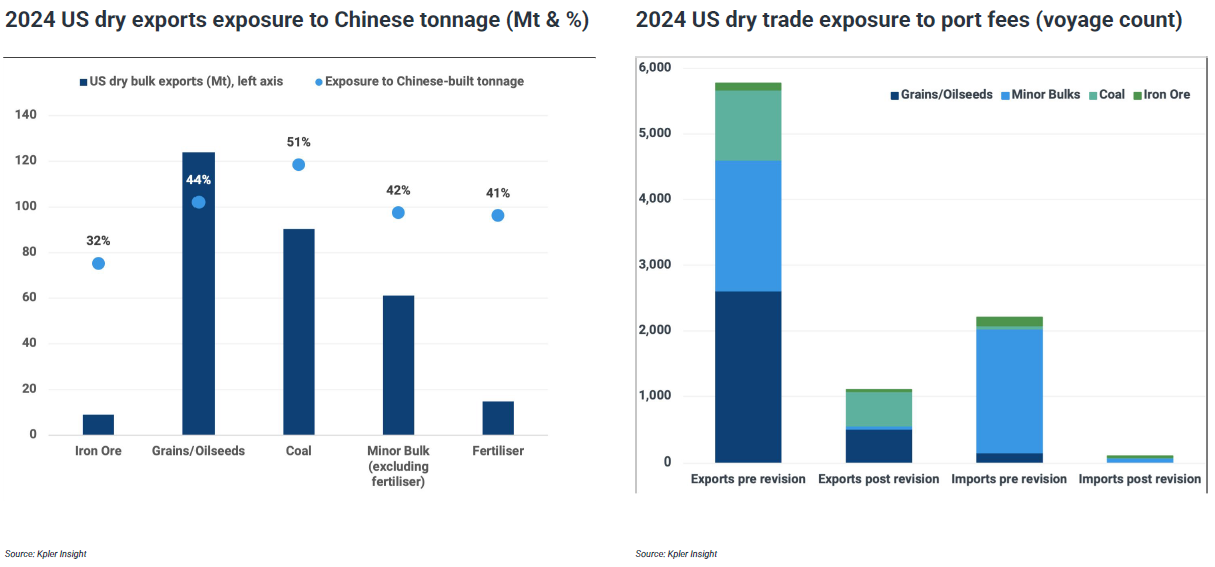
Scheduled Maintenance Period Approaches
Vessels built from 2010-2012 are due for special surveys, potentially tightening supply capacity over the next three years.
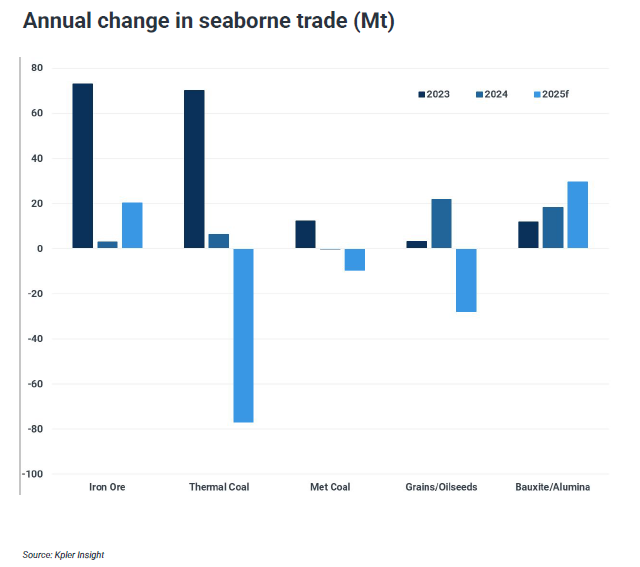
The discussion included the dry bulk fleet: existing and under construction, as well as the proportion of fleets requiring special surveys by year.
What US Port Fees Could Have Done but Didn’t
If the initial rules had passed, nearly half of US coal and grain exports would have faced fee increases. Key Takeaways and Outlook • Declining coal demand impacts shipping and earnings, while fleet aging and policy easing improve market sentiment. • Coal demand in China and India weakens, limiting growth in dry bulk fleet seaborne trade. • As coal demand falls, Panamax and Supramax fleet utilization rates decline, reducing shipping demand. • Vessel earnings face downward pressure, while lower oil prices slightly reduce shipping costs. • Port delays decrease and port space increases, primarily due to reduced coal handling volumes. • The dry bulk fleet will undergo special surveys from 2025-2027, which will begin to constrain supply capacity.
• The revised port fees in the US have reduced the number of affected dry bulk voyages.
》Click to view the special report on the 2025 Indonesia Mining Conference & Critical Metals Conference